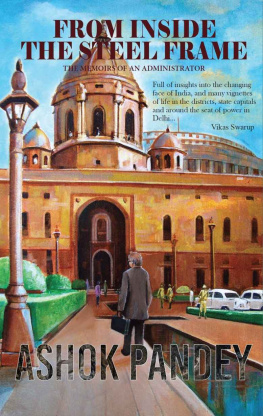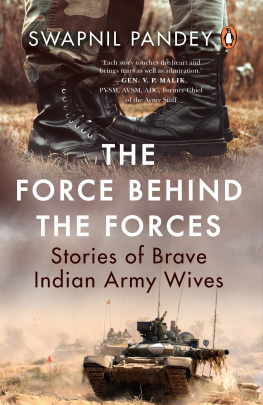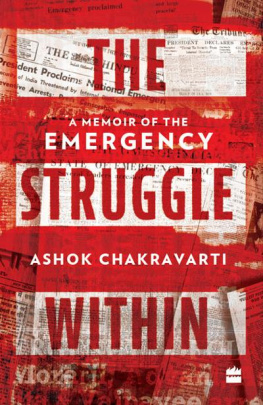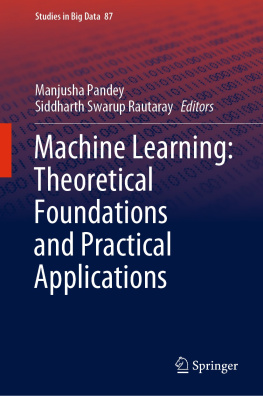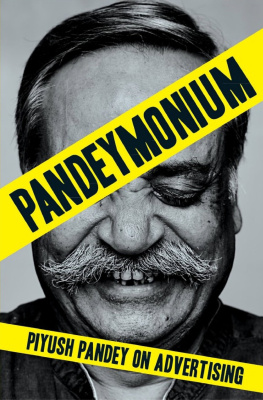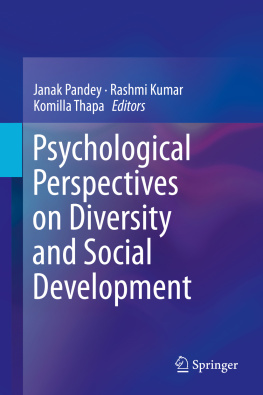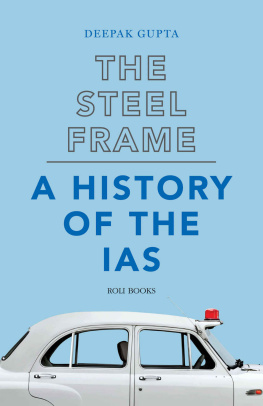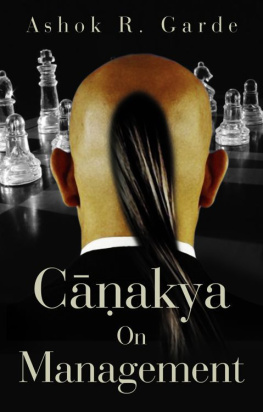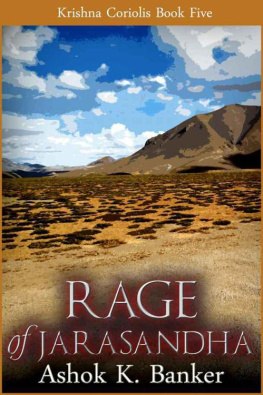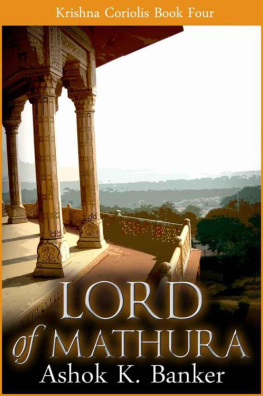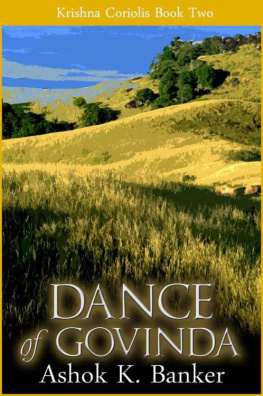Ashok Pandey - From Inside the Steel Frame: The Memoirs of an Administrator
Here you can read online Ashok Pandey - From Inside the Steel Frame: The Memoirs of an Administrator full text of the book (entire story) in english for free. Download pdf and epub, get meaning, cover and reviews about this ebook. year: 2016, publisher: Palimpsest Publishers, genre: Home and family. Description of the work, (preface) as well as reviews are available. Best literature library LitArk.com created for fans of good reading and offers a wide selection of genres:
Romance novel
Science fiction
Adventure
Detective
Science
History
Home and family
Prose
Art
Politics
Computer
Non-fiction
Religion
Business
Children
Humor
Choose a favorite category and find really read worthwhile books. Enjoy immersion in the world of imagination, feel the emotions of the characters or learn something new for yourself, make an fascinating discovery.
- Book:From Inside the Steel Frame: The Memoirs of an Administrator
- Author:
- Publisher:Palimpsest Publishers
- Genre:
- Year:2016
- Rating:4 / 5
- Favourites:Add to favourites
- Your mark:
- 80
- 1
- 2
- 3
- 4
- 5
From Inside the Steel Frame: The Memoirs of an Administrator: summary, description and annotation
We offer to read an annotation, description, summary or preface (depends on what the author of the book "From Inside the Steel Frame: The Memoirs of an Administrator" wrote himself). If you haven't found the necessary information about the book — write in the comments, we will try to find it.
Ashok Pandey: author's other books
Who wrote From Inside the Steel Frame: The Memoirs of an Administrator? Find out the surname, the name of the author of the book and a list of all author's works by series.
From Inside the Steel Frame: The Memoirs of an Administrator — read online for free the complete book (whole text) full work
Below is the text of the book, divided by pages. System saving the place of the last page read, allows you to conveniently read the book "From Inside the Steel Frame: The Memoirs of an Administrator" online for free, without having to search again every time where you left off. Put a bookmark, and you can go to the page where you finished reading at any time.
Font size:
Interval:
Bookmark:
Despite its distinct colonial legacy and imperial overtones, the Indian Administrative Service has encompassed the countrys vast expanse within its administrative structure, responding to the needs of the young republic. Often flawed and inadequate, the IAS as an institution, however, has integrated India with its fabled steel frame offering cohesion and order to a land known for chaos and a million mutinies. Directly descending from the British masters Indian Civil Service, the IAS, the countrys highest administrative tier, has evolved over the decades being alive to the impulses and aspirations of the nation. At times when the political leadership has failed and floundered, the executive has steadfastly navigated the boat through choppy patches.
Dr Ashok Pandey exemplifies the evolution of the elite administrative cadre in all its glory and occasional dark craters as well. Coming from a family which had actively participated in the freedom struggle in Bihar, he served in the districts of Assam and Meghalaya as a young IAS officer at the outset of his career. He went on to handle crucial responsibilities at the Centre and in Bihar later. His recollection of this long journey reads like chapters of Indias political history as he records in his memoir major events in their nuances. The book focuses on the centrality of the steel frame, its crucial role in the life of India and at the same time, captures its pitfalls and entrenched biases as the author himself experienced them towards the end of his career.
THE STEEL FRAME
ADMINISTRATOR

Published by Palimpsest Publishers 2016
Palimpsest Publishing House Pvt. Ltd.
16 Community Centre, Panchsheel Park
New Delhi 110 017, India
Copyright Ashok Pandey 2016
All rights reserved
ISBN 978-93-82622-11-6
This book is sold subject to the condition that it shall not be, by way of trade or otherwise, be lent, resold, hired out, or otherwise circulated without the publishers prior consent in any form of binding or cover other than that in which it is published and without a similar condition including this condition being imposed on the subsequent purchaser.
Typeset in Adobe Caslon Pro.
Printed and bound at Thomson Press, India
To my late uncle Mahendra Shastri,
who taught me early in life
that to live is to pursue hope audaciously
We should speak what we feel,
not what we ought to say.
Shakespeare, King Lear
B orn into a modest landowning family in the small village of Ratanpura in one corner of Bihar, my life indeed took strange turns. Land was held as joint property and was looked after by my uncles. My father was a teacher and then went on to become the headmaster of a high school. His eldest brother, a Sanskrit teacher, kept shifting from one school to another. But his stature in society far surpassed that job description. It would not give a full account of everything he did. He was basically a social reformer and a freedom fighter determined to end the British rule. Those days, the more ardent freedom fighters, chosen by their group as the leader, or dictator (yes, they were called dictators), were entrusted with the responsibility of leading the anti-British movement in particular areas until they were arrested. Before going to jail, a freedom fighter would nominate another activist as the next dictator. My uncle was one such dictator, who, too, was arrested and put behind the bars by the British for a few months. As far as his social reforms were concerned, he saw the rigid caste system as the bane of India and worked tirelessly to rid society of this evil. He strongly favoured emancipation of the downtrodden and women. He made it a point to eat in the houses of people belonging to the lower castes, or the untouchables then called Harijans, as Mahatma Gandhi saw them. It is a different story that Harijan as a term is no longer in use and has been replaced by Dalit. He was totally against the practice of child marriage, worked hard to do away with the custom and was convinced about its deep link to the lowly status of women in society. He tirelessly campaigned for womens education and their economic independence. We saw him engaged in a struggle against the big landlords and other orthodox elements with vested interests who prevented women from going to school and seeking employment. In most cases, he was successful in convincing such people. More interestingly, we found that many such women who had benefitted from his social reforms, went on to be the main breadwinners of their families. My uncle, Mahendra Shastri, helped and enthused his innumerable admirers to set up schools and run them. Many of them, as we later found, were for girls. He taught at a school and after a while made his way to another his every move meant more schools and libraries coming up.
He was a well-respected man in the area; his commitment to the cause of freedom and education earned him a large number of followers. They admired him because of his deep conviction and looked up to him for his guidance. He was dead set against smoking or any kind of tobacco addiction. He wrote many poems (yes, he was a prolific poet, good at his art) against evil practices like tobacco chewing. No one dared smoke a bidi or chew tobacco if he was around. Such was the respect he commanded. There was a moral halo around him. People in the nearby villages held him in awe. My father, on the other hand, was primarily an educationist. Beginning as a middle-school teacher, he became a university professor, and among his accomplishments was valuable research in Hindi literature. Though he too had participated in the freedom struggle, he later chose to devote all his time to education. He was a profound and somewhat orthodox scholar.
My other two uncles were in charge of the household, looking after our land and farming activity. Out of the two, the youngest uncle practiced Ayurveda and worked in a sugar factory during the cane crushing season. Ours was a family of zamindars, though revenues from this source did not add significantly to our family income. Introduced by the Mughals, this system continued through the long spell of British rule; it transferred the ownership of land to a handful of influential and rich people who in turn, leased their acres to tenant farmers and collected revenue from them. A part of the revenue was then deposited in the government treasury while the rest remained with the zamindars. This system of zamindari had a very ugly side to it, as some of the landlords indulged in all forms of repression, extortions, sexual exploitation and cruelty. However, we were the respected ones and nobody could point a finger at the conduct of our family. I distinctly remember that during my childhood days rent receipts were handed to the farmers even if they were not in a position to pay because of their dire straits. Sometimes, they would pay only in kind bringing vegetables or fruit to our door. We were perhaps the first landlords to allow our tenant-farmers to come into our courtyard and sit with us. They were offered wooden planks, an improvement from the previous times when their only choice was to sit on the ground. Our humane gesture was certainly an attempt to soften the rough edges of the old feudal system, and also, perhaps a hint at the dawning of democracy ending the long colonial rule. Much credit for that should go to my revolutionary uncle and to a small extent me. One reason for this endearment was the fact that we were known more as educators rather than feudal landlords steeped in orthodoxy.
Next pageFont size:
Interval:
Bookmark:
Similar books «From Inside the Steel Frame: The Memoirs of an Administrator»
Look at similar books to From Inside the Steel Frame: The Memoirs of an Administrator. We have selected literature similar in name and meaning in the hope of providing readers with more options to find new, interesting, not yet read works.
Discussion, reviews of the book From Inside the Steel Frame: The Memoirs of an Administrator and just readers' own opinions. Leave your comments, write what you think about the work, its meaning or the main characters. Specify what exactly you liked and what you didn't like, and why you think so.

